Objects in Limbo
by Cheryl Diane Kidder
George and Doris were in the backyard having coffee at the picnic table. The weather had just warmed up enough for them to take their breakfast outside before George headed out to work.
“What was that?” George heard it first.
Doris looked up from her English muffin and sniffed the air a bit. “I didn’t hear anything.” She looked at the back fence, expecting another sound, maybe those coyotes trying to get in the yard. Good thing they didn’t have a small dog. “If it’s those coyotes again, I say we get the shotgun.”
“Wasn’t coyotes,” George said.
They sat very still on the two opposing redwood benches, the morning warming up around them. It was too early for Mrs. Betts next door to be out and about yet and the young couple on the other side were late risers as well. The sound had either come from directly behind their house, or where?
“Sounds like somebody threw a TV out the window,” George suggested, pushing the bench aside.
“Oh, you’re not going out there are you? We don’t need to get involved, whatever the hell it is.” Doris tried to keep her seat but she was up on her feet and right behind George.
The two of them tiptoed through their own house, both silently making their way to the living room. Luckily, Doris hadn’t opened the blinds yet so they were both able to walk right up to the window then carefully fold back one vertical blind, Doris on one side of the window and George at the other. They had to experiment a minute before each found a blind that gave them good access to the drama unfolding across the street.
“Good God, what have they done over there?” Doris said.
“Maybe I should call the police?” George suggested but made no move away from the blinds.
“Yes, I think you should. Someone could be hurt over there.”
“It looks like he drove straight through the garage door,” George said, still not believing it.
“Yeah it does. But where is she? Can you see him? Is that a body slumped over the wheel?”
“Ok, I’m calling the police.” George still didn’t move.
All the drapes were open across the street. Doris could see directly into the house, but she saw no movement at all.
“Do you think the children are still in there?” Doris said.
George didn’t answer. He found the cord to the blinds and yanked it hard. Doris let out a little scream. “What are you doing?” she whispered.
“I can’t see properly. If I’m going to call the police, I want to be sure what I’m reporting.”
They stood in their robes and pajamas in the picture window staring across the street. The garage door was certainly in pieces and the little navy blue Saturn Mr. Mulligan drove to work every day was sitting in the middle of the pile of wrecked lumber. She just couldn’t tell if anybody was in the car.
“Can you see in the car?” Doris asked.
“No, can you see anything?”
“Nothing at all. But now we know what that sound was.”
They stood at their window. Doris pulled her robe tighter around her body.
“Well, are you going to call the police, or what?” she asked George.
He shrugged his shoulders. “Maybe it’s none of our business.”
“If it was me, I’d want somebody to call the police for me.”
“Well that’s fine but it would never be you. I’d never drive through the garage door.”
“Yes, but that’s not the point.”
They looked back across the street. Two people had just walked through the front room very fast. Then their front door opened and Mr. Mulligan appeared.
“Quick, close the blinds, George. For heaven’s sake.” And she jumped back behind the drape.
“They’re not looking over here. Let’s just see what happens.”
Doris peeked out from behind the drape. Mrs. Mulligan appeared at the front door, hands on her hips. She was in her nightgown and her hair was fuzzy and ratted out.
“She’s yelling at him,” George said.
“Can you hear anything?”
“No. But I think he’s just going to get in the car and drive off.”
“How can he do that? He just wrecked his house. His wife is standing in the front door yelling at him.”
They watched as Mr. Mulligan got into his blue Saturn and pulled fast out of the driveway. Planks and pieces of board fell off the car as he backed out. Mrs. Mullligan started running down the front walkway.
“She’s going to try to stop him.”
“I can see that, Doris.”
They watched Mrs. Mulligan run down the sidewalk after the disappearing Saturn. She didn’t get much past her own driveway though and stopped. She hung her head, turned around and walked back to her front door, stepped in and closed it behind her. George and Doris waited a moment and then kept watching as, very slowly, the drapes were pulled shut.
“Well, that’s that.” Doris said.
“I’m glad I didn’t call the police.”
“You might have to one day. I still didn’t see the children.”
“Doris,” George had grabbed the rope pulleys of the blinds and let the blinds fall back into place, “you’re just too nosey. It’s none of our business.”
And now George was back pretending to prune her apricot tree. Doris walked out onto the front porch. She could tell George was watching the Mulligan house again, just like before.
“Just come in now, George. Nothing’s happening anyway.”
George pulled the sheers back from the apricot tree and let them hang at his side. He looked down at the cut limbs on his lawn and regretted that he’d now have to pull the garbage can around to the front and break up the wood.
Doris was at his side. She took the sheers out of his hands. He let her. He was late for work anyway.
“I know what you were doing out there, George.” Doris gave him a bad look as he headed for the car. He took the sack lunch she held out to him.
“Yeah, well, you never know what goes on in another person’s house, do you?” He was a little sad. He probably should have called the police before the Mulligans had the garage door repaired. Now he’s most likely missed his chance.
“You better jump, mister. Coming in late every day isn’t going to get the bills paid.” She put her hand on his back as he turned away.
“I should have retired last year. Then I could prune the trees anytime I like. What’s for lunch,” he asked, opening the door to the garage.
“Tuna sandwich and strawberries.” She closed the door behind him. Sometimes she found it hard to believe he was a civil engineer. She imagined he was a good enough civil engineer, but when he’d brought up retiring last year she had to set him straight.
“We are in no position to retire from anything, George,” she told him. He made her promise that they could discuss retiring next year. They were both past retirement age but every time George tried to bring it up, Doris poo-pooed him.
“What would you do with yourself all day? Might as well keep bringing a paycheck home if we’re still able to.”
George scrunched up his face at her and walked away. He could think of a few things he’d like to be doing.
That night they watched an old movie on TV instead of the usual talk shows. Doris loved the old movies. They reminded her of when she was a kid, rather of when her mother was a kid. Her mother was always telling her about movies she’d seen. Doris had grown up watching Shirley Temple movies and then musicals. Her mother would buy the entire score of her favorite musicals and learn how to play them on their old Steinway. She wasn’t a great piano player but she could read music and once you got the melody line you could sing the words. Doris knew the words to more songs than anybody she’d ever met.
Every night when she turned the bedside lamp off she looked down at the framed picture of her mother on the bedside table. The picture was taken when her parents were courting. Her mother is young and slim, her head is thrown back and she’s laughing wildly. Doris thinks if she looks at the picture long enough she can conjure up a memory of her mother like this, but it hadn’t happened yet. She remembers her mother very differently, but loves the picture just the same.
George seemed tired and not thrilled with a movie, and once he laid down and shut his eyes, he was out. Sometimes Doris saw this as a betrayal or an abandonment. She hates not being the first one asleep, but more and more George falls asleep first and Doris must make do with the company of the TV. On this night, she stayed up late after watching an old Ethel Merman musical with Jimmy Durante and then watched The Thin Man. Mostly she loved watching Asta, their little dog. She had always wanted a little dog but George would always nix the idea so she became a connoisseur of film dogs.
Halfway through The Thin Man, George started snoring like crazy. She pushed his shoulder, he turned over and stopped. Her last thought was, “I should turn off the TV.”
Next thing she knew her eyes were open, the TV was still on, some guy trying to sell exercise equipment. She reached over for the remote and saw the other side of the bed was empty. She patted the empty space just to make sure she wasn’t seeing things.
“George?” she called out, then got out of bed, put on her slippers and tiptoed out into the hall. She looked in the bathroom, nothing. She walked into the kitchen, no lights on. She flipped on the light switch. The refrigerator was humming as usual, but no George. She flipped the light off and walked into the front room. She turned on the little lamp at the side of the couch, just enough light to see by. Nope, no George. Then she heard it. The snipping again, just like this morning. She went to the blinds. There was George, out in the light of the moon, snipping at her apricot tree again. She went to the front door, yanked it open and walked right out onto the front lawn, “George Johanson, what in god’s name are you doing out here? Do you have any idea what time it is?”
She put her hand on his arm to stop the snipping and looked into his face. He turned his face to her. His eyes were wide open but he wasn’t there. She took the sheers out of his hands and threw them on the ground a few feet away.
“George?” She shook him a little. “George, are you awake?”
George looked at her and said, “Mali con nomey, burn a bunny.”
“What?” she shook him again. “Wake up. Wake up.” She pushed the hair off his forehead.
“I’m awake.” He said simply.
“Well, what are you doing out here?”
“Money come happy, cars. Doors.” He said sincerely to her and looked across the street.
“Oh, no you don’t. No more cars or doors. You have to come into the house right now.” She took his arm and pulled him a little at first. Then he followed her until they got to the front door. He tripped over the front step.
“There you go.” Doris pulled his legs back up onto the bed and then pulled the covers over him. He put his head on his pillow and smiled up at her.
“Vinnie con tuo.” He nodded at her and closed his eyes.
She got back into her side of the bed and stared at him, afraid at first to not sit up and watch him, afraid he might do that again. He could have been hurt, anything could have happened. She sat there watching George, the light of the TV illuminating the room. She picked up the remote and turned the sound up a little bit. It wouldn’t hurt her to make sure he got back to sleep soundly. She surfed around until she found My Man Godfrey, another William Powell movie,then sat back against her pillows. George hadn’t sleepwalked in years. The doings over at the Mulligans must have upset him more than she realized.
* * *
That night George dreamed about when he was a boy and had wanted to get away from his parents and seven brothers and sisters. He’d gone down to the lake, not the end of the lake where all the boats were tied up and where all the tourists go every summer, but the complete opposite end of the lake. It wasn’t easy to get to either. He happened upon it by chance one summer when the whole family had driven down for a short weekend vacation.
The cabin his parents had rented was only two rooms, parents in one room, his three sisters in the other bedroom and George and his brothers sacked out in the living room in sleeping bags. The price difference between the two-bedroom and the three-bedroom probably would have put his father too much in the hole so instead of not going at all, the boys agreed to rough it by sleeping on the floor.
Well, George had about had it with roughing it after the first Friday night. Mikey kept rolling over and kicking him in the face and he wasn’t asleep at the time either. George was the second youngest so Kevin and Patrick were always picking on him and Mikey could only pick on George when they weren’t at home and he knew George wouldn’t hit him back or cuss him. George did his best to keep the peace. It wasn’t always easy.
So, since he was wide awake anyway, he got up in the pitch black, put on his jeans and grabbed an apple and his pack with his fishing gear and took off in the complete opposite direction of all the people and all the family and everything that had any mark of civilization on it.
For a couple hours he really thought he’d gotten lost. He’d lost all sight of the lake but could still smell it. The dawn came up early which was good. He tried to get his bearings by the sun, but the trees were so high and so dense that it was tough to do. He cussed himself out for leaving the compass behind. He knew it was right there in Kevin’s pack too. But soon he came upon a small trail that led him straight to the water’s edge.
Once he got back to the water he followed it along until he couldn’t go any further. A sandy beach opened up and he set his pack down. The sun was at his back. The campsite and cabins were directly across the lake. All he could hear was an owl sometimes, far off. Even the birds had quieted down. The clear lake water lapped gently on the sand and then retreated. It had its own business and wanted nothing from him. It wouldn’t kick him in the head or punch him in the arm. He lay back and set his head on his pack and looked up at the sky. There were clouds whisping about, nothing much and a little breeze. He closed his eyes.
When he woke up the sun was directly in his eyes, heading fast down the opposite end of the lake, behind the tall pines. It looked like he’d slept all day. He sat up and looked around. There weren’t any boats on the lake, none that he could see or hear. The water was just as clear and calm as when he’d fallen asleep. After his initial panic he started wondering what his hurry was. He was pretty sure his parents might not even notice he was gone so he headed back, but he headed back slow.
He hadn’t been back to his beach in probably more than twenty years. Although he visited it every time he took a family trip there and a couple times when he was in college he took a drive by himself and hiked out to his beach and sat there watching the sun set. He never wanted to take anybody else there. It wasn’t a large beach, really only enough room for one person to comfortably sit or lie down anyway. He never saw any footprints on the sand. And there were always the most beautifully colored, sand-polished stones just at the edge of the beach, just under the water. He never picked one up. He tried to memorize their position once to see if anyone had moved them the next time he visited. If he had a paper and pencil right now he could still map them out just as they were then: two round blue stones, six multi-colored in a rectangular formation and one flat stone with a red hue to it. If he concentrated on the colors of the stones and the sound of the water breaking over them, even now, he could hear the water falling between the stones, onto the beach, almost up to his bare feet.
* * *
“George, get away from that window, I’m serious.”
“Shut off the light, would you?”
“I will not shut off the light. You get away from that window and put down those binoculars. I swear. You’d think you were eight years old.”
“There’s nothing wrong with a little healthy curiosity.”
“Your curiosity has been the death of my apricot tree.”
“That tree was on its last legs.”
“It was in better shape before you took the pruning sheers to it.”
“Every tree needs a little pruning now and then.”
“George, you’ve pruned that tree every day for a month. There’s nothing left but a stump. It’ll never grow back. You know I got a book out of the library that says you’re not supposed to trim fruit trees down to the stump. You just do that for roses.”
“Maybe I’ll buy you some rose bushes tomorrow.”
“What, so you can prune those for me? No thanks. Why don’t you buy a nice evergreen that we don’t have to do anything to but water.”
“Too boring, too predictable. I want something that might die immediately but for the care I give it.”
“We could always get a dog, George.”
“Dog’s are messy and they die on you. No, a dog’s no good.”
“Ok, then a cat? A parakeet, a hamster, anything. I’d love to have another living thing in the house.”
“No, no rodents. I refuse to share my house with rodents. Hell, we pay people to come get rid of pests like that.”
“Cats aren’t pests, George.”
“They are to me.”
“Now give me those binoculars.”
“No, wait, I think I see a light on.”
“There’s nothing to see there George. Let’s go to bed.”
“You go on ahead, I’ll be there in a minute.”
“I’ve heard that same thing for a month George and every morning I wake up and another bush or tree has been pruned to the point that I’m going to have to take them out.”
“Well, we need some new landscaping anyway.”
“Come to bed, George.”
“In a minute.”
“I’m not going in without you this time. I’m waiting right here so you might as well finish up. There’ll be no pruning tonight.”
“God, you won’t let me have any fun at all. You know at my age, fun becomes very difficult.”
“Spying on the neighbors isn’t fun, George. It’s probably criminal. You could go to jail if they reported you.”
“The only person going to jail is you for forcing me to give up the only pleasurable thing I have.”
“I can wait all night, George.”
“I’m almost done.”
“Hand over the binoculars.”
“In a minute.”
“Hand them over, George.”
“All right fine. Here.”
“That’s better. Now let’s go to bed.”
George followed Doris reluctantly out of the living room. Never want anything you just can’t do without, he reminded himself.
* * *
Doris refused to go to Wal-Mart. At first it was a political thing, the way they would always build them right on the outskirts of poor communities, forcing all the downtown mom-and-pop stores out of business. She read in the paper about how Wal-Mart was the biggest employer in the US and she just figured that was wrong.
But more than that was that awful smell of old popcorn. George loved it. They’d hand out miniature bags of popcorn, red and white striped bags with ruffled edges, overflowing with yellow popcorn. Yellow from all the fake butter and George would munch on it as he walked down all the hardware aisles. First Doris would go with him and just wander off by herself into kitchenwares and usually pick up a few different size Tupperware containers. But then she put her foot down.
“I’m not going to Wal-Mart any more,” she told George as he dangled the keys in front of her.
“Why not?”
“I just don’t like the way they do business.”
“Since when?”
“Since forever. I always felt this way but I just didn’t think about making a big deal out of it but now, now I think I found my principles after all.”
George thought it over for a minute. “Well, will you go to K-mart then?”
Doris thought back to the last time she was in K-mart. No popcorn smell. The aisles were wider, not so many poor families with snotty nose kids hanging off of the shopping carts.
“Yeah, K-mart’s OK. Target would be better.”
“You just like Target because it’s in that ritzy neighborhood.”
“Nothing wrong with that. I like looking at the big houses.”
George grumbled to himself all the way out to the car, his face all creased up like he was thinking about some math problem but what he was thinking was that Doris was wanting a bigger house, a bigger yard, a different neighborhood. He wasn’t going to bring it up, but every time Doris even got close to suggesting that some other house was so nice, or maybe they could spend Sunday morning some time driving around looking at model homes, George crinkled up his face and Doris immediately dropped the idea.
“What’s so bad about dreaming big, George?” she’d asked him once after he’d nixed a Sunday outing.
“I got all I need right here. There’s no reason for a bigger house. Bigger house just means bigger mortgage and more cleaning and more lawn to mow. More work.”
“But wouldn’t it be fun to move, to experience a different place, maybe meet new neighbors who were more, you know, like us?”
George crinkled up his face. He liked the neighbors just fine. They stayed in their houses and he and Doris stayed in their house. No uncomfortable social sessions out on the sidewalk, no potlucks on weeknights, and no kids riding bikes and skateboards up and down the street. That was a plus.
“I like it fine right where we are. I thought you did too?” He looked over at Doris, with the most agreeable look he could manage and was surprised when she dropped the subject entirely.
K-mart wasn’t like Doris remembered. They walked in together through the automatic doors, the a/c hitting them square in the face. Doris looked up at the mirror and watched George’s bald spot walk away from her toward the hardware section. She stopped for a minute to get her bearings. No popcorn smell. That’s good. Off to her left the cash registers rang. Every sales station had a big line of people in it, their shopping carts bulging with purchases. It made Doris want to go right back outside, maybe drive to a park, take a walk, anything but spend money.
Sighing heavily, she headed off toward housewares, as usual. She got to the head of the aisle with the Tupperware and stopped. She thought back to her cupboards at home that were already chock-full of Tupperware and fake Tupperware. She had Tupperware containers and Tupperware in the shape of Jell-O molds and popsicle molds she’d never even used before. She turned around and headed instead to the lingerie department. It was the one place she was certain she would never spend any money.
When they got back home, George went out to the garage to hang up the new tools he’d bought. Doris took her bag, which she purchased without George’s knowledge, into the bathroom and locked the door. She turned the bag upside down dumping the contents out on the counter then picked up each piece separately and laid it out so she could get a good look at it all.
She’d decided to go all red. A red thong, red push up bra (she guessed at the size, it’d been years since she bought a new bra), a short red nightie and something the sales lady said was the piece de resistance, whatever that meant: a garter belt and of course the red stockings to go with it. She’d never seen so much red lace and polyester before in one place and just looking at it all laid out on the counter made her laugh.
She avoided looking at the garter belt and left the stockings in their package. She held the thong up and could not figure out which end went where even though the sales lady had practically drawn her a map. She hiked up her dress and stepped out of her normal white cotton undies. She laid the thong on the ground trying to get a better look at it but she still couldn’t figure which way it went so she just picked up one side and the other and stepped into it and pulled it up.
She looked in the mirror. “Oh, this just can’t be right.” She said to her reflection.
* * *
The first time George got a look at the red lingerie he’d just turned the TV off and had stood up from the Barcalounger after several hours. Doris walked in all in red and he had to sit right back down.
“What the hell is that?” he asked her, his voice a little loud though he tried not to sound too scared.
“What do you think?” she was smiling. She held out the lacey edges of the red nightie and slowly turned around giving George the full three-sixty.
“That’s a lot of red.” He stretched back into the Barcalounger, not sure he was ever going to get out of it now.
“I thought I’d pick up a little something different,” Doris giggled then caught herself.
“They run out of Tupperware?” George asked hesitantly.
Doris put the sides of her nightie down and stood in her kitten-heeled red silk-like slippers in the middle of the living room, TV off, the lamp over in the corner the only light.
“Is that all you have to say?” she asked him.
“Well, it’s different all right.” He put his hand over his mouth. He just realized what she reminded him of. One Halloween when he was ten or so, Millie Bates down the street had dressed up all in red, from head to toe and put a green felt hat on her head. She claimed her mother had made the outfit and that it was supposed to be an apple and certainly her chubbiness aided the illusion, but now all George could think of was fat Millie Bates in her apple costume carrying a pillowcase asking for candy up and down the street. For a second he forgot himself and laughed out loud. Once he heard the laugh he clamped his hand back over his face hoping Doris hadn’t heard.
“Really, there’s no need to laugh,” Doris hung her head. Her arms hung at her sides.
George leaned forward and squinted. “What’s that you’ve got on underneath there?”
Doris looked up at him. “It’s called a thong and this other contraption’s a garter belt. See?” She lifted her nightie up to reveal the complex web of undergarments, all still red.
George sat back in his chair. “Is it comfortable? Are you going to sleep in all that?”
Doris stepped over to the couch and sat down. The nightie blossomed around her like a little red cloud. She kept her knees together and her toes forced into a point due to the shape of the slippers.
“I don’t think this is for sleeping actually,” she said.
“I thought you liked those cotton nightgowns I’ve been buying you all these years.”
“I do like them. This was just something, you know, different, something new.”
“New is not always a good thing.”
“You don’t like it.”
“I like it fine, but do you like it?”
“I kind of like it.” Doris managed a little smile. “Makes me feel, different.”
“Different how?” George’s brow crinkled. This was not like Doris, not like Doris at all.
“Just different. I don’t know how yet. I guess I have to wear it around a little more to see.”
George got up. “Well, I’m going to bed. You coming?” He paused by the lamp, ready to turn it out, not wanting to leave her in the dark.
“I think I’ll just sit here for a while.”
“Now, Doris, come to bed. You know I can’t get to sleep until you come in.”
“I’ll be in. I just want to sit here for a while in my new things.”
“All right then.”
George walked into the bedroom and sat on the edge of the bed. It was no use even putting on his pajamas, he’d be wide awake until she got into bed and if she got into bed in that contraption he might never get to sleep. What was she thinking? All these years, he’d never seen that much red lace in his own house. What was he going to do? Maybe he could make her take it back. But she seemed to really like it.
George remembered the time he’d bought the fishing waders from that Angler’s catalog. They’d taken six months to arrive and when they did he pulled them right out of the box and stepped into them. Granted, they didn’t exactly feel natural but he could totally imagine standing in the middle of some great trout stream in Montana in those babies, cool, dry and comfortable. When Doris had walked in on him and started laughing he had to wait for the explanation.
“You look like you’re about to go get on a motorcycle or something.”
“What do you mean? They’re waders. Aren’t they great?”
“Your butt’s hanging out of the back just like those guys who ride motorcycles.”
“It’s not the same at all,” he’d argued at first.
“And why the camouflage? Are you planning on going to war?” Doris had laughed all the way into the kitchen.
George had thought the camouflage was cool, made it all seem more serious somehow. But he couldn’t stand to be made fun of. He’d gone into the bathroom and stood on top of the toilet seat trying to see what they looked like in the mirror over the sink. He still didn’t think they looked so bad but he’d put them away that night, back into their box and stuffed the box under the bed and had never gotten it back out even though he’d gone fishing just last summer.
Doris sat at the kitchen table idly flipping the pages of the morning paper, trying not to pout. She wriggled her bottom in the plastic seat, trying to get comfortable with the thong. She needed something to take her mind away from her failure to impress George. She never used to read the science section but then the headline “Faded Star Defies Description” grabbed her attention. She unsnapped her garter belt, adjusted the thong again, leaned closer to the table and read further.
“Some stars take, some give. Then there is the tortured relationship in EF Eridanus, where the smaller of two stars gave so much to its larger companion that it reached a dead end, scientists reported. Doomed to orbit its more energetic partner for millions of years, the burned-out star has lost so much mass that it can no longer sustain nuclear fusion at its core and has become a new, indeterminate stellar object.”
“A new, indeterminate stellar object,” Doris repeated. Could it be there was something up there that hadn’t been defined, named, labeled? This interested her.
“Now the donor star has reached a dead end – it is far too massive to be considered a super-planet, its composition does not match known brown dwarfs, and it is far too low in mass to be a star. There’s no true category for an object in such limbo.”
She had to remember that one, no longer a star, but something new, undefined. In that moment a world opened up to her she hadn’t thought of in a long time. Sure, she took astronomy in high school and she used to study the stars as a kid, but she barely remembered the names of the ones that were labeled, and now this.
She imagined herself all new again and got up from the table. She stretched her legs out in front of her like a ballerina and did a couple of twirls as she walked over to the light switch on the wall. Her red nightie flew around her like an encircling moon or Saturn’s rings. She just might keep this nightie after all.
* * *
The next morning George stepped outside to pick up the morning paper. He left the front door open to let in the breeze and sat on the couch, spreading the paper out in front of him. He flipped the edges until he found the sports page and wriggled it out, sat back into the deep cushions, licked his thumb and opened the pages directly to the fishing section, sounds of Doris in the kitchen slapping pans around for breakfast.
“Hello?”
He heard the voice and looked up, the paper shielding his face from the front door.
“Hello?” he answered back.
“It’s me, Sara Mulligan from across the street.”
George dropped the paper. So it was. The very woman he’d had framed in his binoculars day after day. He sat up straight, aware he was in his pajamas, his hair mussed, his teeth unbrushed.
“Ah, please come in?” He had to pause before he stood up. Was he decent? Would he be exposing too much by standing up and stretching out a welcoming hand?
“I don’t want to bother you,” she paused as well just inside the front door.
“No bother at all. We’re just getting up. I mean, we’re just here, reading, early morning, no bother.”
She stared at him. He was sure she was about to cry. Good God, not tears, anything but tears. He jumped up and moved the papers away from the couch, forgetting all thoughts of decorum.
“Please, sit here.” He waved his hand to include the entire couch and backed off a little while she decided what to do.
“I really don’t want to bother you.” She dropped down onto the corner of the couch at the same time dissolving into a mask of tears, her head hung down, hair obscuring her face.
Now is your chance, George. Comfort her, say something, be a friend, a father figure, a brother, a potential lover. No, scratch that. Sit down, say something, touch her hand.
“You have some trouble?” He sat down on the couch next to her, an arm’s length away, and reached out his hand, but he was too far away to touch her.
Her crying had quieted. She nodded her head and looked up at him.
She had the clearest blue eyes he had ever seen, her tears coloring them almost sea green and when she blinked, back to blue. He tried concentrating on her mouth.
“How can I help?” He reached his hand out again and touched the couch near where her knee crooked over the edge. He was aware of how her jeans fit and the soft leather of her boots.
“Do you have any Kleenex?” she asked.
George laughed. “Kleenex? Of course, Kleenex, yes I can get you Kleenex.” He jumped up to run into the half bath off the front hallway and tripped over the coffee table, bashing his knee directly into the corner. He hardly noticed it.
Back, he handed her the box of Kleenex with the crocheted cover. It was pink with a black poodle on it. The poodle had a rhinestone collar. He was instantly embarrassed.
“My wife’s aunt makes those things for Christmas. Have to have them out, you know, if they come over.”
“My husband’s gone,” she said.
George nodded. It didn’t surprise him. Her husband had been leaving for months. He’d watched him leave for days at a time before. How could she be sure this time he was gone for good?
“You think he’s gone for good then?”
She nodded and blew her nose, a dainty and delicate maneuver in her hands. She tucked the used Kleenex under her leg.
“The children?” he asked her. His mind was racing. Why was she here? What did she want him to do about it? Maybe she should be speaking with Doris.
“They’re at his mother’s in Oklahoma.”
“I see,” he told her, though he saw no such thing.
“I think,” she started and then the tears began to flow again. “I think he’s gone there to take them away from me.” She lowered her head, buried her face in her sobs.
George moved closer to her, took a Kleenex out of the crocheted box and touched her chin. She looked up at him. He smoothed her hair back and wiped the tears off her cheeks. He saw how young she was, no long held grief or disappointments showed on her face. He knew just by looking at her that she was someone who dared to ask for things and that things would be given to her. He couldn’t tell her no, he would never tell her no.
She sniffed and looked into his eyes. “You’re very kind.”
He could smell her breath. She’d had some sugary cereal for breakfast, maybe Lucky Charms or Captain Crunch. He caught the sweet smell as she opened her mouth to speak. He leaned closer to her.
At that moment the kitchen door opened and a red nightie-clad Doris came through the door, plate of eggs in one hand, glass of orange juice in the other.
“George?” She stopped midway between the door and the couch when she saw George leaning over the young woman from across the street.
George immediately stood up and faced her. “Doris, this is Sara.” He stood in between the two women, crumpling the wet Kleenex in his hand, surreptitiously pulling his pajama bottoms closer around him. “Sara from across the street.” He looked expectantly to Doris and then really looked at her and saw that she hadn’t changed out of her red ensemble.
“Oh, oh dear.” He turned his back on Doris and stood directly in front of Sara to shield her from seeing Doris in her nightie.
Sara stood up and leaned around George. “I’m so sorry to invade your home like this.” She stepped away from the couch.
Doris stepped over to the coffee table and set the eggs down. “Your eggs, George.” Then she took a couple of swigs of the orange juice herself.
“It’s quite all right,” Doris sank down onto the opposite end of the couch. “I always knew it would come down to this.”
“What?” George was jumbled by the vision of Doris all in red and the woman he had so long watched being in the same room, the one on his left hand the other on his right, only a couch separating them.
“I knew I couldn’t hold onto him any longer. I’ve known it for a long time.” She looked sadly out the front window. “Look at what lengths,” she held out the corner of her red nightie, “I’ve gone to. Made a clown of myself and for what?” She laughed. “It happened any way.”
“George?” Sara Mulligan looked to George for guidance.
“I have no idea what you’re talking about, Doris.” George said.
“That’s all right.” She got up and ran her hands through her hair to straighten it. “I’ll pack my bags and be out by lunch time.”
“What?” George fell back onto the couch, both hands on his head.
Sara stood immediately and took a step toward the front door. “I’m afraid you’ve misunderstood,” she said.
“Doris, Sara’s husband’s left her.”
Doris turned around, a wise smile on her face. “Well, that will make it all the easier for you two.”
“Doris, Sara’s afraid her husband has taken their children and she came over here for advice.”
Doris stopped walking to the bedroom and turned around again. “But he’s left you many times in the past.”
Sara shook her head vehemently. “No, he’s never left us. Never. We’ve had some quarrels, some disagreements, but this is different.” She teared up again.
“You’re not here to run away with George then?” Doris asked her.
“Doris,” George said, trying to stop the words before she said them.
Sara looked over at George. “George has been kind enough to listen to my troubles. You see, I don’t have any family here and you two always seemed so perfect in your perfectly kept up house, perfectly manicured yard.”
George looked over at Doris and raised his eyebrows. Doris frowned at him.
“So you’re not here to take George away?” Doris repeated, unclear how an over-pruned yard could be mistaken for a perfectly manicured one.
“No, no of course not,” Sara answered her. “I’m here for help. Any help. I don’t know what to do. Can you help me?”
Doris walked back over to the couch and sat down next to George taking his hand. She took a big breath, looked at Sara, looked at George. George smiled at her sheepishly.
“Well, I guess we could give her the name of our lawyer?” She looked at George, willing herself not to cry.
George looked at his wife, at her soft brown eyes, the face he knew so well, and pushed back her hair letting his hand brush her cheek for a moment. Doris smiled up at him.
* * *
Later that day they drove out to the Garden Center just beyond the interstate and walked down the rows of star jasmine, pyracantha and fruit trees until Doris found a medium sized elm she liked the looks of. George bought it for her and they planted it just outside their big front picture window.
The light filtered through the leaves and hit their front curtains that they generally kept closed at all times except of course when the new family moved in across the street. Then George had to hunt through the hall closet to find his old set of binoculars as well as Doris’s new set. Doris moved the two armchairs next to the window and pulled the curtains open just enough for the two of them.
“Flat screen TV,” George was the first to notice.
“Two dogs,” Doris yelled.
“Oh god, not dogs, anything but dogs.”
 BIO
BIO
Cheryl Diane Kidder has a B.A. in Creative Writing from San Francisco State University. Her work, nominated five times for the Pushcart Prize, has appeared or is forthcoming in: Able Muse, CutThroat Journal of the Arts, Weber – The Contemporary West, Pembroke Magazine, decomP Magazine, Tinge Magazine, Brevity Magazine, Brain,Child, Identity Theory, In Posse Review, and elsewhere.
For a full listing see: Truewest – http://cheryldkidder.blogspot.com.
 Samantha Eliot Stier’s stories have appeared in many literary journals, including The Faircloth Review, Black Heart Magazine, Infective Ink Magazine, Mojave River Press & Review, Citizen Brooklyn, Drunk Monkeys, Gemini Magazine, Spry Literary Journal, and Blank Fiction Literary Magazine, and were featured in L.A.’s 2014 New Short Fiction Series. She has an MFA in Creative Writing from Antioch University Los Angeles, and lives in Venice Beach, California. You can visit her at http.//samanthastier.com/.
Samantha Eliot Stier’s stories have appeared in many literary journals, including The Faircloth Review, Black Heart Magazine, Infective Ink Magazine, Mojave River Press & Review, Citizen Brooklyn, Drunk Monkeys, Gemini Magazine, Spry Literary Journal, and Blank Fiction Literary Magazine, and were featured in L.A.’s 2014 New Short Fiction Series. She has an MFA in Creative Writing from Antioch University Los Angeles, and lives in Venice Beach, California. You can visit her at http.//samanthastier.com/.


 John Oliver Hodges has published two books of fiction: The Love Box and War of the Crazies. He lives in Brooklyn, and teaches writing at Montclair State University in New Jersey. “Ethel’s Mountain” is his second story to appear in The Writing Disorder.
John Oliver Hodges has published two books of fiction: The Love Box and War of the Crazies. He lives in Brooklyn, and teaches writing at Montclair State University in New Jersey. “Ethel’s Mountain” is his second story to appear in The Writing Disorder.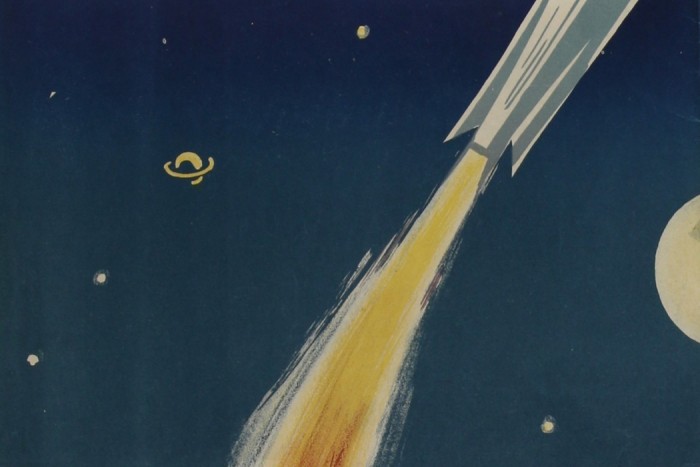
 Charlie Brown
Charlie Brown
 Lou Gaglia’s work has appeared in The Cortland Review, The Oklahoma Review, The Brooklyner, Prick of the Spindle, Waccamaw, Eclectica, Amsterdam Quarterly, The Hawai’i Review, and elsewhere. His collection of short stories, Poor Advice, will be available from Aqueous Books in 2015, and his story, “Hands” was runner-up for storySouth’s 2013 Million Writers Award. He teaches in upstate New York after many years as a teacher in New York City.
Lou Gaglia’s work has appeared in The Cortland Review, The Oklahoma Review, The Brooklyner, Prick of the Spindle, Waccamaw, Eclectica, Amsterdam Quarterly, The Hawai’i Review, and elsewhere. His collection of short stories, Poor Advice, will be available from Aqueous Books in 2015, and his story, “Hands” was runner-up for storySouth’s 2013 Million Writers Award. He teaches in upstate New York after many years as a teacher in New York City.
 Clarissa Nemeth is originally from Gatlinburg, Tennessee. She has a Bachelor of Music degree from Boston University, an M.F.A. from North Carolina State University, and is currently a doctoral candidate in creative writing at the University of Kansas. She primarily writes about individuals and communities in Appalachia and the New South and is working on a novel about the tourist towns of Sevier County, Tennessee. She lives in Lawrence, Kansas with her husband Greg and their pit bull, Boogie. This is her first publication.
Clarissa Nemeth is originally from Gatlinburg, Tennessee. She has a Bachelor of Music degree from Boston University, an M.F.A. from North Carolina State University, and is currently a doctoral candidate in creative writing at the University of Kansas. She primarily writes about individuals and communities in Appalachia and the New South and is working on a novel about the tourist towns of Sevier County, Tennessee. She lives in Lawrence, Kansas with her husband Greg and their pit bull, Boogie. This is her first publication.
 Norman Waksler has published fiction in a number of journals, most recently The Tidal Basin Review, The Valparaiso Fiction Review, Prick of the Spindle, Thickjam. Scholars and Rogues and The Yalobusha Review. His most recent story collection, Signs of Life is published by the Black Lawrence Press. He lives in Cambridge, Massachusetts. His website is NormanWakslerFiction.com
Norman Waksler has published fiction in a number of journals, most recently The Tidal Basin Review, The Valparaiso Fiction Review, Prick of the Spindle, Thickjam. Scholars and Rogues and The Yalobusha Review. His most recent story collection, Signs of Life is published by the Black Lawrence Press. He lives in Cambridge, Massachusetts. His website is NormanWakslerFiction.com
 Bobby O’Rourke is a native of New Jersey, as well as a graduate of both Rutgers University and Union County College. He is currently enrolled in a Master’s program at Fairleigh Dickinson University. He has had poetry published in
Bobby O’Rourke is a native of New Jersey, as well as a graduate of both Rutgers University and Union County College. He is currently enrolled in a Master’s program at Fairleigh Dickinson University. He has had poetry published in 
 Originally from Baltimore, Suzanne hopped on a plane to Israel for a yearlong volunteer program after graduating from Emory University in 2008. Six years later, she’s still there, living and working in Tel Aviv. Over the years, she’s worked as an English teacher, copywriter, content writer and editor. She recently finished a Masters in Creative Writing at Bar Ilan University, and is currently working on her first novel and a pretty weird collection of short stories. This is her first publication. You can follow her @SuzanneHyman or read her blog at
Originally from Baltimore, Suzanne hopped on a plane to Israel for a yearlong volunteer program after graduating from Emory University in 2008. Six years later, she’s still there, living and working in Tel Aviv. Over the years, she’s worked as an English teacher, copywriter, content writer and editor. She recently finished a Masters in Creative Writing at Bar Ilan University, and is currently working on her first novel and a pretty weird collection of short stories. This is her first publication. You can follow her @SuzanneHyman or read her blog at 
 BIO
BIO

 David Hicks’ work has appeared in Glimmer Train, Colorado Review, Saranac Review, South Dakota Review, and other publications. He lives in Wheat Ridge, CO.
David Hicks’ work has appeared in Glimmer Train, Colorado Review, Saranac Review, South Dakota Review, and other publications. He lives in Wheat Ridge, CO.
 BIO
BIO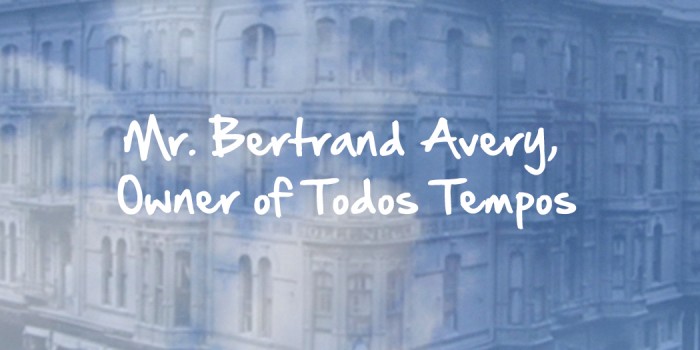
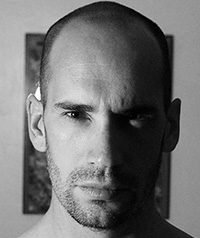 BIO
BIO
 A graduate of the Dramatic Writing Program at Tisch School of the Arts at New York University, Joshua Sidley has published short stories in the online journals Fear and Trembling, Kaleidotrope and Bewildering Stories, and the print journal Down In The Dirt Magazine, as well as the online publisher
A graduate of the Dramatic Writing Program at Tisch School of the Arts at New York University, Joshua Sidley has published short stories in the online journals Fear and Trembling, Kaleidotrope and Bewildering Stories, and the print journal Down In The Dirt Magazine, as well as the online publisher 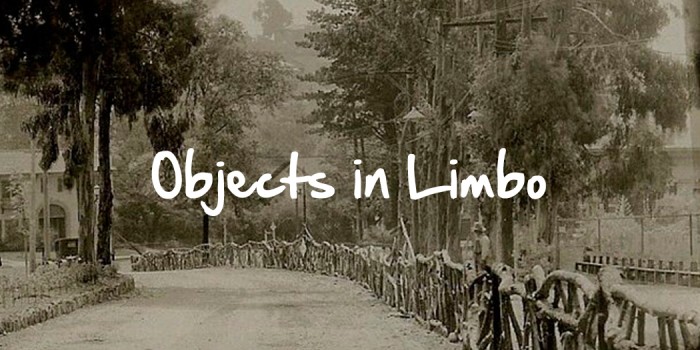
 BIO
BIO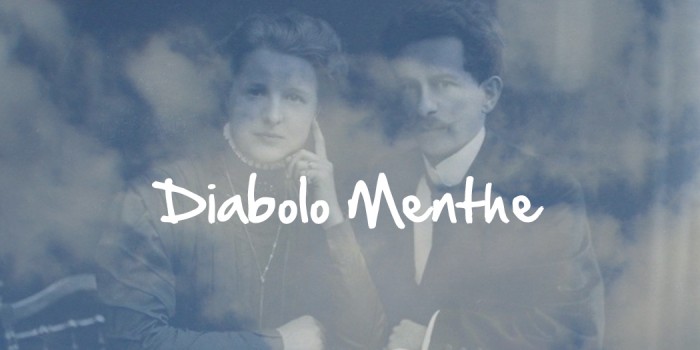
 BIO
BIO
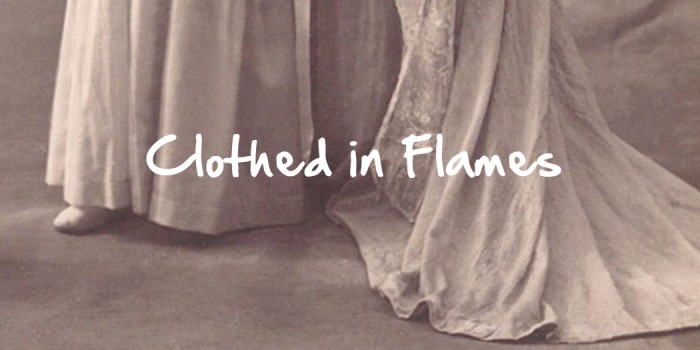
 Ellen Plotkin Mulholland grew up in San Bernardino, California. After earning her degree in Journalism and English Literature at the University of Southern California, she moved to London and wrote her first novel. Today, she parents, writes and teaches in Northern California. She is the author of two YA novels: “Birds on a Wire” and “This Girl Climbs Trees.”
Ellen Plotkin Mulholland grew up in San Bernardino, California. After earning her degree in Journalism and English Literature at the University of Southern California, she moved to London and wrote her first novel. Today, she parents, writes and teaches in Northern California. She is the author of two YA novels: “Birds on a Wire” and “This Girl Climbs Trees.”
 Richard Hartshorn lives in upstate New York and earned an MFA from Vermont College of Fine Arts. His work has appeared in Drunken Boat, Split Rock Review, Hawaii Women’s Journal, and other publications.
Richard Hartshorn lives in upstate New York and earned an MFA from Vermont College of Fine Arts. His work has appeared in Drunken Boat, Split Rock Review, Hawaii Women’s Journal, and other publications.
 he sat on the window seat in the empty bedroom and looked out across the lawn. It was cold for October, and she pulled her sweater tight. The pine tree boughs bent away from the gusting wind, and the red maple leaves blew across the ground. She had always loved the changing seasons, but now she was going to a place that was summertime all year long. No winter coats this year.
he sat on the window seat in the empty bedroom and looked out across the lawn. It was cold for October, and she pulled her sweater tight. The pine tree boughs bent away from the gusting wind, and the red maple leaves blew across the ground. She had always loved the changing seasons, but now she was going to a place that was summertime all year long. No winter coats this year. Sarah Kruel has worked in the field of mental health and substance abuse treatment as a therapist, researcher, and teacher. She spent much of her career as the director of one of the country’s largest residential addiction treatment centers. She competes at major horse shows on the east coast and has written a number of articles for equestrian publications. She is also the author of a self-published book, Speaking of Success: Women’s Stories and Strategies for Living with Peace and Passion (available at Amazon and Infinity Publishing). The short story Coat Tales is her first published fiction.
Sarah Kruel has worked in the field of mental health and substance abuse treatment as a therapist, researcher, and teacher. She spent much of her career as the director of one of the country’s largest residential addiction treatment centers. She competes at major horse shows on the east coast and has written a number of articles for equestrian publications. She is also the author of a self-published book, Speaking of Success: Women’s Stories and Strategies for Living with Peace and Passion (available at Amazon and Infinity Publishing). The short story Coat Tales is her first published fiction.











